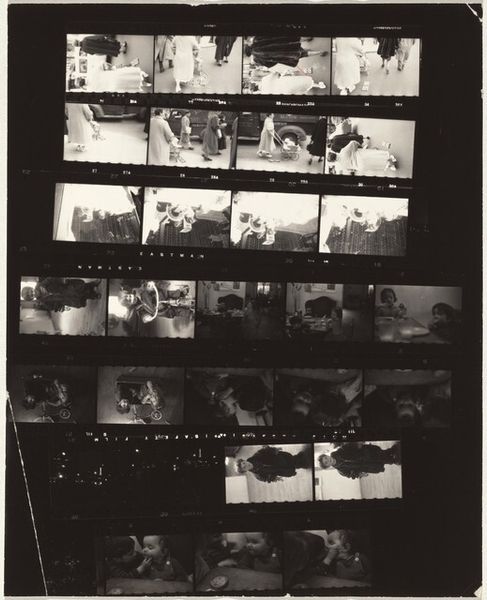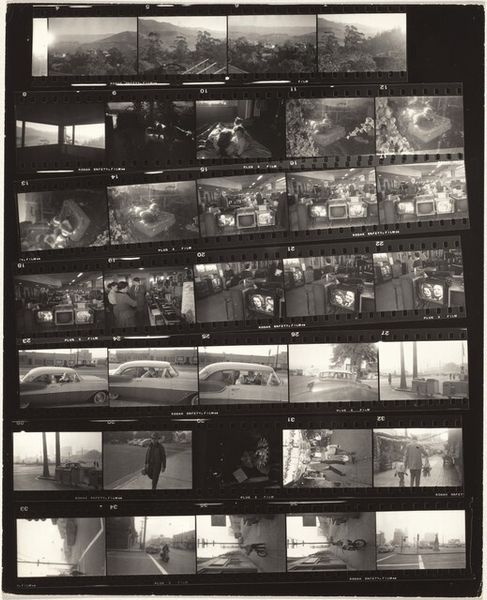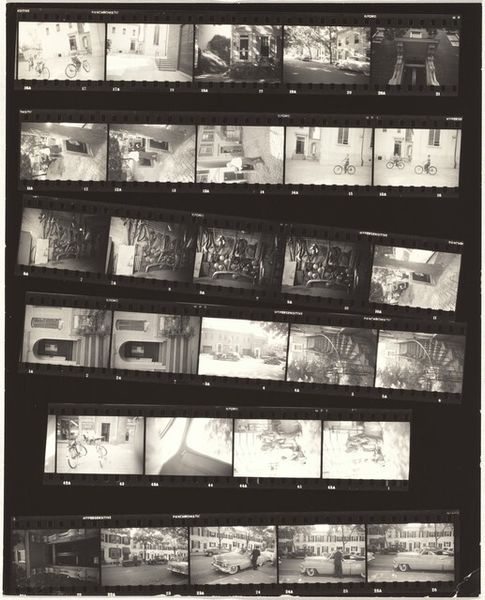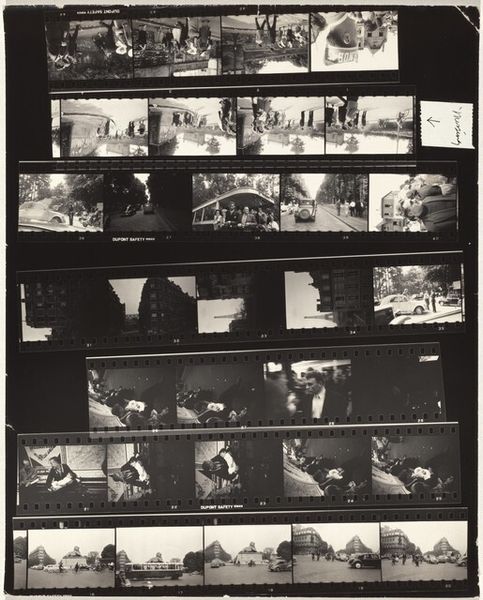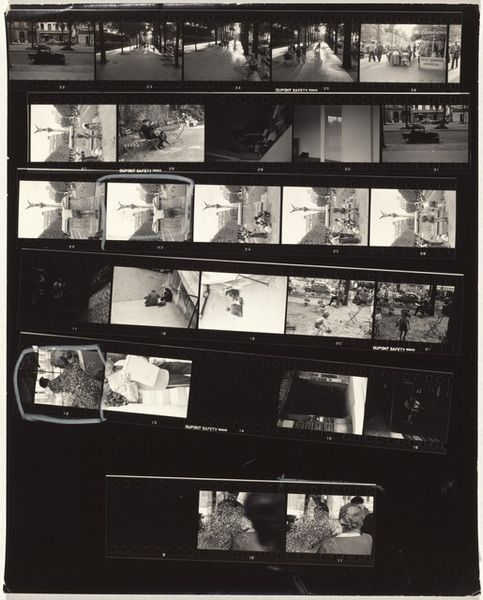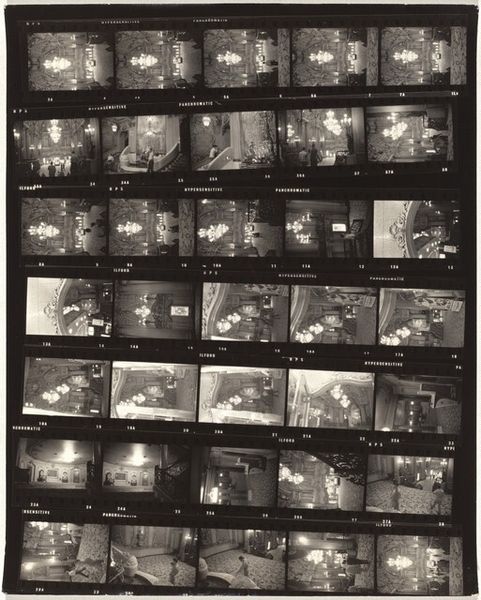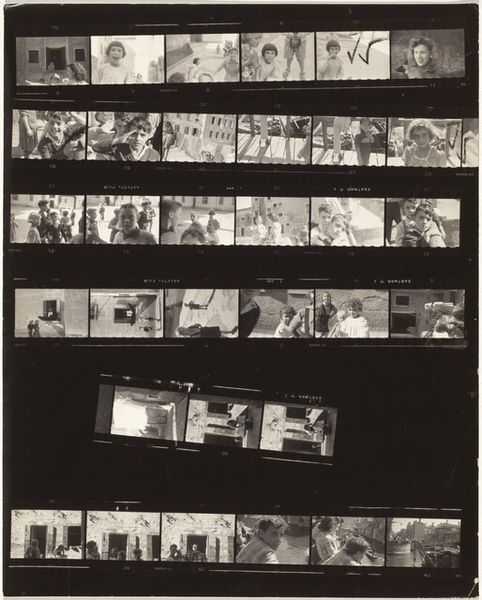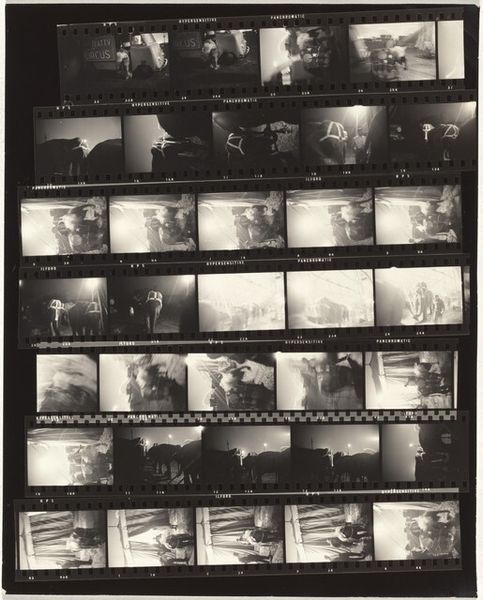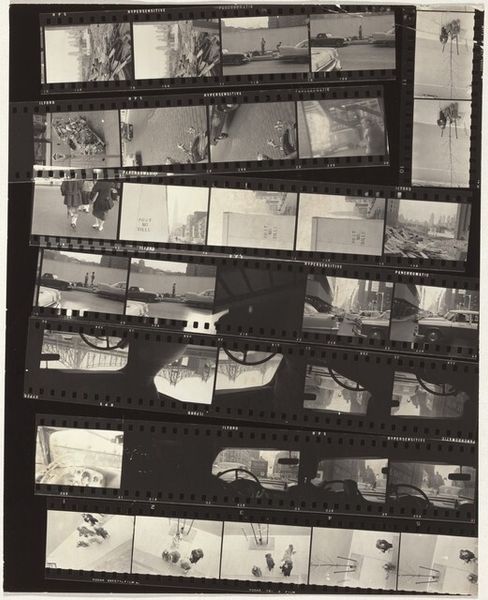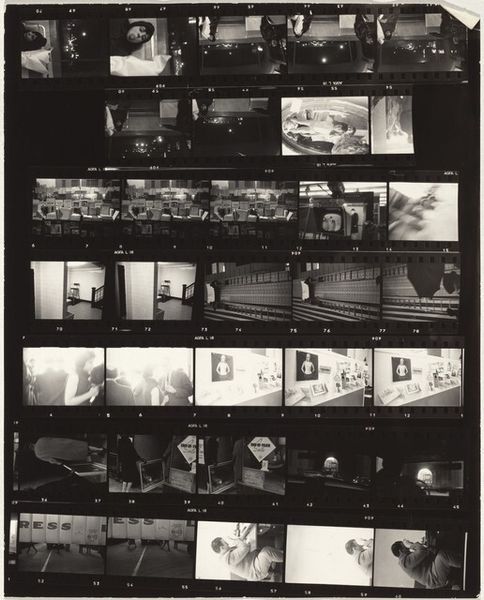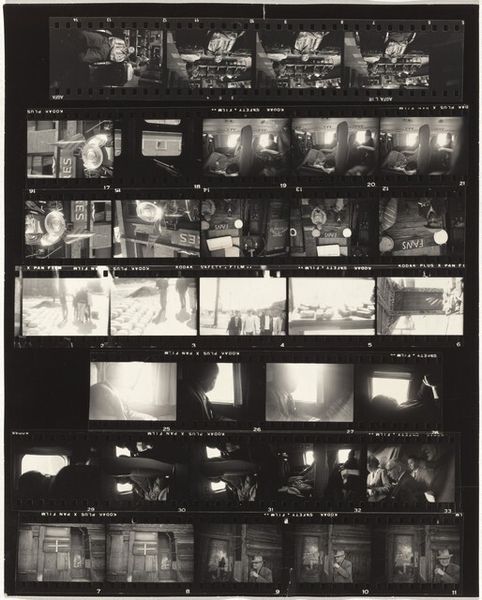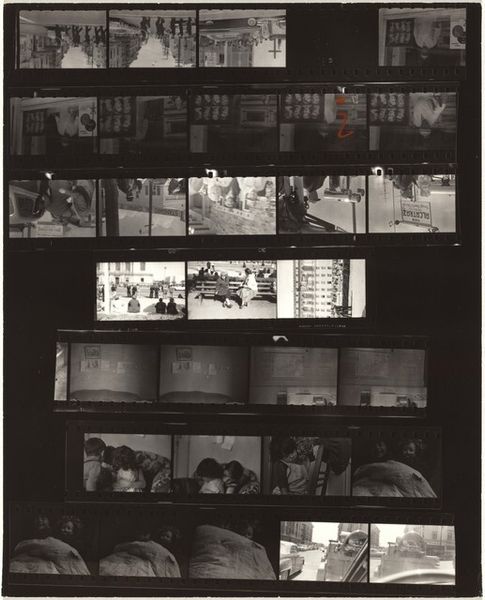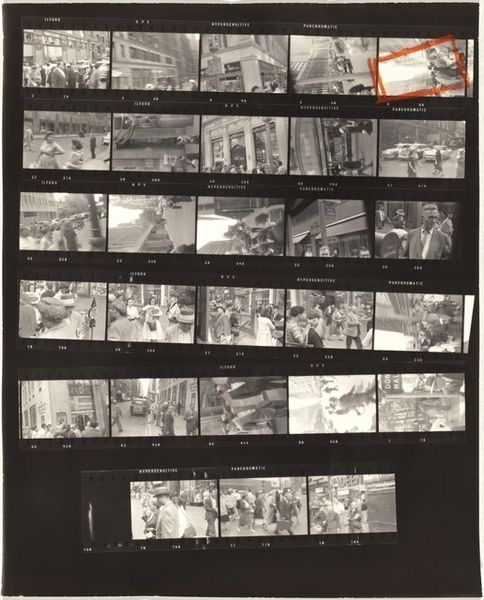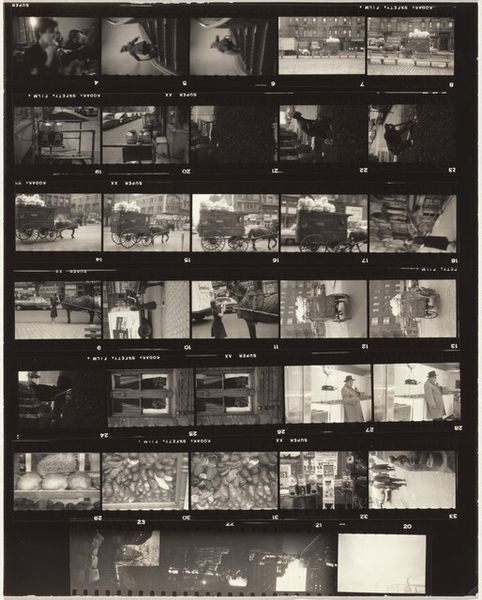
contact-print, photography, gelatin-silver-print
#
black and white photography
#
contact-print
#
street-photography
#
photography
#
gelatin-silver-print
#
monochrome photography
#
genre-painting
#
monochrome
Dimensions: sheet: 25.2 x 20.1 cm (9 15/16 x 7 15/16 in.)
Copyright: National Gallery of Art: CC0 1.0
Editor: So this is "Bridgehampton, New York no number" by Robert Frank, created in 1955. It’s a gelatin silver print showing a photographic contact sheet. It's interesting to see the photographer’s process laid bare like this. How do you approach reading a piece like this where the medium itself becomes part of the artwork's subject? Curator: Intriguing, isn’t it? First, let’s consider the composition. The grid format imposes a structure, highlighting seriality. What effect does the contrast between the neatly arranged grid and the candid subject matter create? Editor: It almost feels like a controlled chaos, juxtaposing order with these snapshots of everyday life. There's a narrative, but it’s fragmented and open to interpretation. Curator: Precisely. Frank uses the contact sheet to disrupt conventional notions of photographic representation. Note the stark contrast and high grain – what visual effect do these choices produce? Editor: The graininess and high contrast create an almost uncomfortable rawness, like a memory that's slightly out of focus. Curator: Exactly! It avoids sentimentality. He isn’t just documenting, he is actively constructing an impression. This challenges the idea of photography as purely objective. By revealing his selection process, Frank foregrounds the inherently subjective nature of image-making. Do you agree? Editor: That makes a lot of sense. It is like we, as viewers, are put in the position of editor ourselves. It definitely changes how I see the final selected photographs now. Curator: Indeed. The piece is thus a reflection on the artist's subjectivity.
Comments
No comments
Be the first to comment and join the conversation on the ultimate creative platform.
